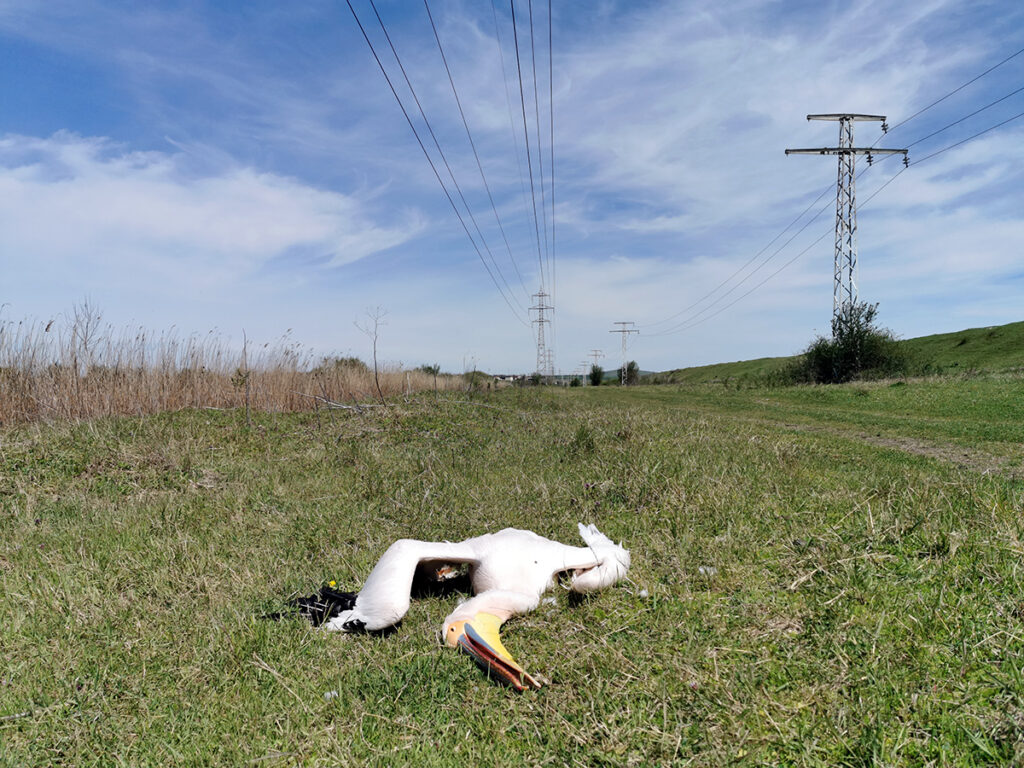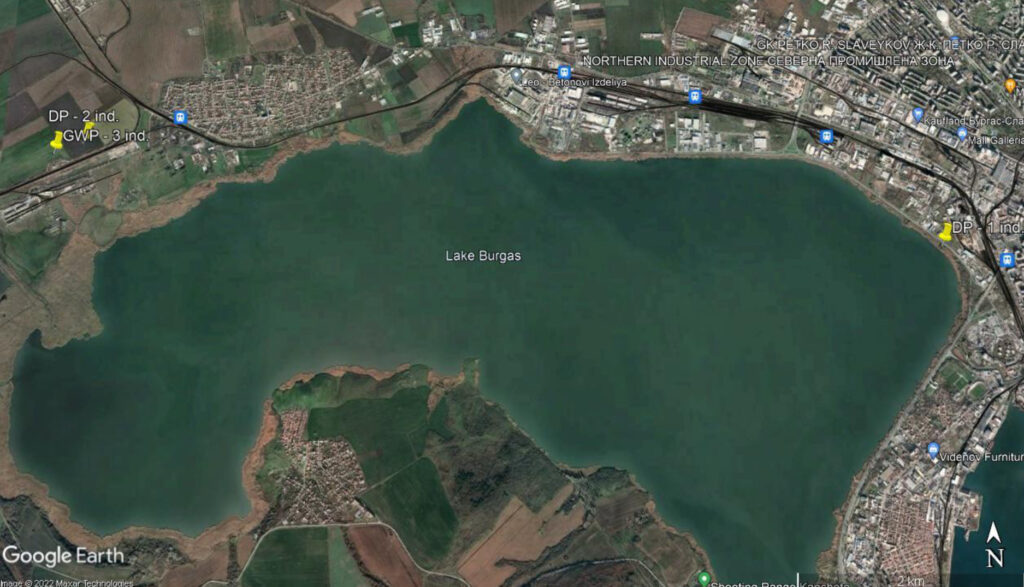23 Great white pelicans and 15 Dalmatian pelicans were found dead during the field survey of the power lines, made by the Bulgarian Society for Birds Protection (BSPB) in Bulgaria. The experts recommend taking immediate mitigation measures to prevent the further deaths of these rare birds.

Death by collision on overhead power lines is one of the most important threats for the Dalmatian pelican in Bulgaria. Pelicans are at high risk from collisions along with other birds such as herons, storks, swans, cranes, some species of vultures, and eagles. Electrocution which is the injury or death of the bird caused by an electric shock from contact with a pylon also adds on. Individual losses from collision mortality are unlikely to affect large and robust populations. However, for species that are rare or endangered, like the Dalmatian pelican, the loss of a few individuals may impact a local population or the overall population’s viability. Especially this year, when the avian flu devastated the species’ population in many European countries.
The BSPB team studied 39 power distribution lines with a total length of 62.9 km in or near the four protected areas in South-East Bulgaria. During the survey in Yazovir Ovtcharitsa area, any dead pelicans were found. While on Burgasko Lake, Mandra-Poda Complex, and Yazovir Rozov Kladenets the team detected 15 corpses of the Dalmatian pelican. As a result of the field study, more than 49 km of power lines were identified as risky for the birds.

“We suggest that a significant number of victims has not been registered during the study because their carcasses have been removed by jackals and foxes, present in high numbers and densities in the studied region,” said Svilen Cheshmedjiev, the head of the BSPB. “During the survey, our team also found in Rozov Kladenets and rescued an injured Dalmatian pelican.”
The scientists also investigated the flight behavior of more than seven thousand birds crossing the power lines over the eight-day long study time. Out of these birds only 2,2% were recorded to change their flight route in the vicinity of the power lines. More frequently they just change the altitude of flight, passing above the lines. Some of the birds were making sudden movements to avoid the collision with the power lines at the last moment, and the pelicans were among them.

“This happened because the pelicans often flew in lines when crossing the wires, and the birds at the front increased their height to fly above the earth wire, leaving the rear of the line gradually less time to gain elevation due to the speed of their flight, resulting in the need to make sudden movements which can be problematic for these large birds” explains Svilen Cheshmedjiev.
Luckily, the collisions of pelicans and other bird species with power lines can be reduced. A number of diverter models that make the power wires visible to birds are available on the market. They have been effectively used for a few decades by power supply companies in order to mitigate bird collision casualties. The BSPB experts call for immediate safety for birds, which can be reached by mounting diverters on the riskiest sections of the surveyed power lines indicated in the report. Not only birds will benefit from this measure, but it’s also very important for power distribution companies. By reducing the cases of birds’ death, they will reduce the power cuts, technical problems, and the need for their elimination. Thus, power distribution companies will reduce their power-line repair and maintenance costs.

Within the “Pelican Way of LIFE” initiative we aim to reduce the risk of collision for pelicans at key sites, including the Burgas Wetlands (Bulgaria), Danube Delta (Romania), Messolonghi, and Amvrakikos (Greece), by installing bird diverters on at least 10 kilometers of power lines. This action will take place in cooperation with utility companies in Romania, Bulgaria, and Greece. Recently the Hellenic Ornithological Society (HOS) also assessed the powerlines within the Messolonghi Lagoon and Amvrakikos Wetlands National Parks in Greece.